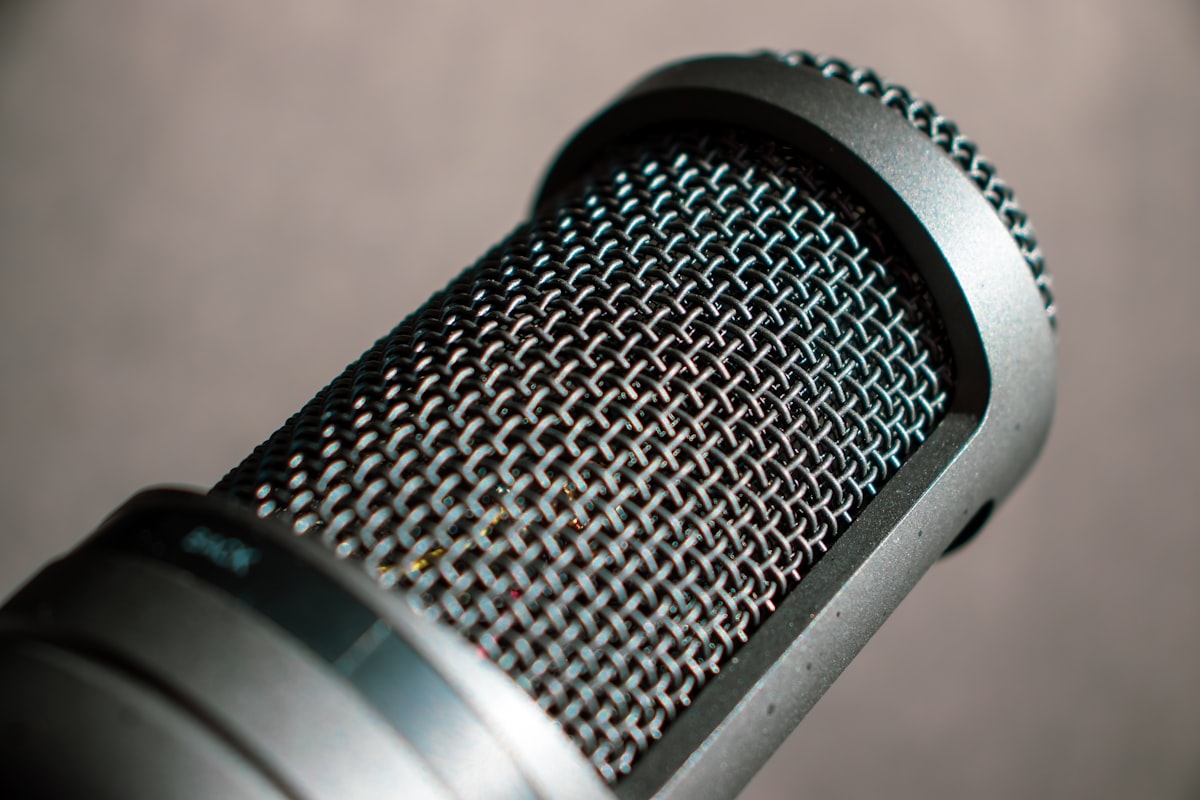What is the Best USB Microphone for Singing?

USB microphones have become more popular with the increase in podcasting and gaming. But these things have very different needs to recording singing. This raises the question whether or not there is a quality USB microphone that can be used for singing. In this article, I will discuss my top pick and why.
The best USB microphone for singing is the Audio-Technica AT2020USB+ due to its quality and value for money. For around $150, it offers low self-noise, good output volume, sturdy metal casing, no lag when monitoring with headphones and is able to isolate your voice better than most USB microphones.
I will talk about this microphone in more depth below, including some of the negatives you may want to consider and why I think it is still work considering a professional recording microphone. I have also included a cheaper alternative for those on a budget of less than $100.
The Best USB Microphone for Singing: AT2020USB+
USB microphones were created for the purpose of simplifying the voice recording process. Instead of needing all the normal components of a voice recording setup, these microphones offer the ability to plug straight into the computer to start recording.
USB microphones are never going to be as good as dedicated recording microphones, but there are some that come close in quality. In my opinion, the Audio-Technica AT2020USB+ (link to Amazon.com) is one of these quality microphones, and I will explain why below.
Audio-Technica as a Brand
Audio-Technica is a Japanese brand that began in 1962. The company's founder, Hideo Matsushita, was passionate about bringing quality sound to everyone. As a result, he produced one of the first affordable phono cartridges (the transducer or 'pickup' used to play turntable records). Prior to that, phono cartridges were far too expensive for the everyday family.
Since then, Audio-Technica have continued producing affordable quality sound equipment, including a range of microphones. In particular, they are known for value and quality construction. The business is also still run by the same family, which tells me that they still have the same vision now that they did in the beginning.
The AT2020USB+ Model
Although the name isn't overly inspiring, something I really like about the AT2020USB+ is that it mimics it's professional counterpart, the AT2020. Audio-Technica have tried to keep the sound quality the same for this USB alternative.
Coming in at around $150, this microphone isn't the cheapest USB microphone you'll find, but it's great value for the quality you get. And it's quality that you need when wanting to record vocals.
Cheaper USB microphones, although more affordable, will not provide good enough quality for 'studio' recording. They're fine for recording yourself talking (like in a podcast), but not really worth your time or money if you want it to pick up the rich sounds of a singing voice.
Therefore, considering the AT2020USB+ gives you close to studio quality sound, with the convenience of 'plug-and-play', this price is quite good value. Below are some of the reasons why I think this microphone has the quality needed for recording singing.
A Sturdy Cardioid Condenser Microphone
While some USB microphones offer multiple polar patterns, recording vocals is best done with a cardioid condenser microphone. The fact that this microphone is exactly that, and only that, is a good thing. Sometimes companies can try to make their products too versatile and the result is; 'Jack of all trades but master of none'.
Having a microphone that does one thing usually means that it does it well. For the AT2020USB+, I think this statement is true. With a solid unchangeable build from quality parts (metal casing is a personal favorite of mine), this microphone isn't going to break anytime soon.
Having sturdy cardioid condenser technology means that this microphone is able to isolate your voice well. Therefore very few background noises will be picked up in the recording (not including disturbance to the microphone, which I will mention later). Having this sensitivity to your voice is going to result in a richer, clearer recording.
Low Self-Noise
Self-noise refers to the constant hum of the electronics within a microphone that it picks up and amplifies. Microphones with higher self-noise will generate recordings with a buzz or hum in the background that can't be taken out. Luckily this microphone has relatively low self-noise for a USB microphone.
Ideally you want anything below 15dB of self-noise, or a signal-to-noise ratio of over 80dB. This microphone has around 20dB of self-noise and a signal-to-noise ratio of 74dB, so it's pretty close to what you are looking for in a professional microphone.
Gain and Headphone Control
You will find volume controls for both the microphone and headphones (click here for my recommended headphones) on the front of the microphone. This makes it easy to set up monitoring for your voice, without using specific software on the computer.
Even without manipulating the gain control, the AT2020USB+ has a decent output for its sound. This means that the recording won't be too soft, which is a common problem with cheap USB microphones.
No Delay in Monitoring
Some USB microphones also have a slight delay when monitoring with headphones. Because this microphone has no delay, you won't be distracted when singing and keeping time with the rhythm. This is standard for studio-quality setups, so to have a USB microphone that has the same is a big plus.
Some Downsides to the AT2020USB+
Most of the negative reviews of this microphone centre around a podcaster's point-of-view. For example, it picks up more keyboard noises or doesn't have multiple polar patterns.
Like I mentioned earlier, this microphone's sensitivity and single polar pattern is a positive feature, allowing it to pick up rich clear vocals. Microphone disturbance (such as typing) is not expected when recording yourself singing, so this is not an issue.
Other than that, below are some genuine downsides to consider with this microphone when recording yourself singing.
Not a Cheap Microphone
The AT2020USB+, although cheaper than the professional microphones, is still relatively expensive. Considering my top pick for a recording microphone, the Rode NT1A, is only around $100 more, it seems a waste to sacrifice quality when a professional microphone is so close in price.
Even though professional microphones require more recording equipment than a USB microphone, I would say my preference would be to save that little bit more and go for a professional setup. Provided you have a computer, recording software and headphones already (which you'll need with a USB microphone anyway), you could get yourself a professional setup for less than $500 (take a look at this article).
Still not Studio Quality
Any USB microphone is still going to have trouble with things like plosives and sibilance (harsh or high frequency sounds such as p, t, d, s, sh, etc). It is also never going to offer the same quality as a proper recording setup due to the fact that there is no dedicated audio interface to convert the audio to a digital signal properly.
In saying that, you can always find pop filters and try different post-processing software to make the audio sound more professional. But more accessories are going to add to the overall price.
Cheap Unstable Stand
The stand that comes with this microphone is quite unstable and cheap. This is a shame given that Audio-Technica invested their efforts into making this USB microphone sound so good.
The stand doesn't seem to be able to handle the weight of the microphone well and is therefore prone to breaking or falling over. This is not something you want to be happening during a recording session, so I would recommend getting yourself a different microphone stand. Most singers prefer a proper microphone anyway so they can stand up while singing.
All that aside, remember that these things are to be expected in a USB microphone. The AT2020USB+ is still top of the range in sound quality for what it is.
A Cheaper USB Microphone for Singing
If you really are just wanting to start somewhere and don't have much money to work with, you can still find decent quality for under $100. I would recommend the Samson C0U1. This microphone is the highest quality in its tier of cheap USB microphones and will record better than those in a similar price bracket.
Generally, if you are simply buying a USB microphone for podcasting or interviews, you can get away with the cheaper microphones. The cheaper you go, the more trouble you will find with voice quality in the final product. You will also encounter more sibilance issues and need more accessories, such as pop filters and post-processing software to make it sound acceptable for a recording.
I completely understand the need to keep the price down. Ultimately, pick whatever microphone fits within your budget and work your way up from there. Everyone has to start somewhere. But a USB microphone is going to be the easiest setup for you and will get your foot in the door if you want to record your singing.
